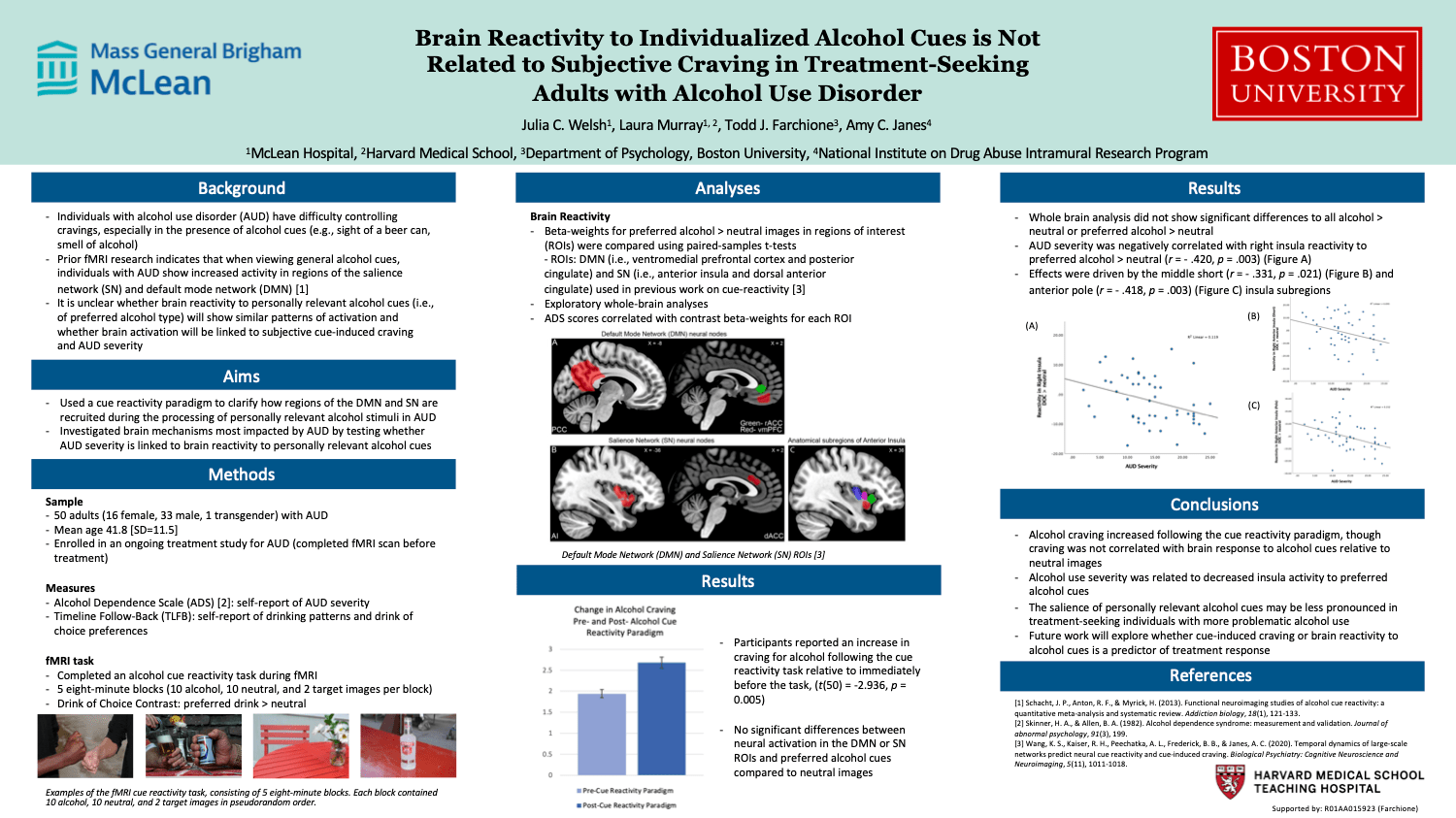Scientific Abstract
Background: Individuals with alcohol use disorder (AUD) experience difficulty controlling cravings, especially in the presence of alcohol cues (e.g., sight of a beer can, smell of alcohol, etc.). Prior research indicates that when viewing general alcohol cues, individuals with AUD show increased activity in regions of the salience network (SN) and default mode network (DMN). However, it is unclear whether brain reactivity to personally-relevant alcohol cues (i.e., of preferred alcohol type) show similar patterns of activation and whether brain activation is linked to subjective cue-induced craving and AUD severity.
Methods: 50 treatment-seeking adults completed a cue-reactivity task during functional magnetic resonance imaging (fMRI) prior to starting AUD treatment. Brain activity was compared for images of preferred alcohol versus neutral images in regions of interest (ROIs) in the DMN and SN. Exploratory whole-brain analyses were also conducted.
Results: Participants reported an increase in craving for alcohol following the cue reactivity task relative to immediately before the task, (t(50) = -2.936, p = 0.005). Neuroimaging analyses revealed no significant differences between neural activation in the DMN or SN ROIs and drink of choice alcohol cues compared to neutral images. Similarly, exploratory whole brain analysis did not show significant differences in brain activity to alcohol versus neutral images. AUD severity was negatively correlated with right insula reactivity to drink of choice cues compared to neutral images.
Conclusions: Our findings may suggest that the salience of personally-relevant alcohol cues may be less pronounced in treatment-seeking individuals with more problematic alcohol use. Future work will explore whether cue-induced craving or brain reactivity to alcohol cues is a predictor of treatment response.
Search posters

